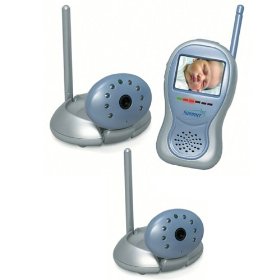Baby buzzkill

For many mamas-to-be, expecting a new baby means squeezing doctor […]
For many mamas-to-be, expecting a new baby means squeezing doctor appointments into an already packed schedule of meetings, carpool and housework. In the pre-baby bump days, you relied on your morning cup of joe to get you through the day (along with an early afternoon latte followed by a late afternoon pick-me-up, of course!). But now that there’s a bun in your oven, it may be time to modify your caffeine quota.

Unfortunately, like many of the guidelines given to pregnant women, the rules regarding caffeine intake during pregnancy vary widely depending on who you ask. Some OBs advise avoiding caffeine like the black plague, while others argue a reasonable amount is fine. The March of Dimes recommends that “women who are pregnant or trying to become pregnant consume no more than 200 milligrams (mg) of caffeine per day.” This means roughly no more than one cup of coffee daily. The recommendation is based on several studies that seem to indicate the consumption of large amounts of caffeine (more than 200 mg) may increase the chances of miscarriage or fertility problems. However, many aspects of these studies are conflicting, and the link between caffeine and these complications has not been proven.
Beyond the bean
If you choose to limit or completely eliminate caffeine from your diet during pregnancy, you may be surprised to find that simply unplugging the coffee maker isn’t going to cut it. Caffeine can be found lurking in an assortment of foods, beverages and even medications that you might not have expected. Use the chart below to determine how much caffeine you’re really ingesting each day.
Detox with decaf
If you’re used to heavy caffeine consumption, scaling back is no picnic. Since caffeine is an addictive substance, withdrawal symptoms are not uncommon. Headaches, irritability and fatigue are all normal side effects of the she-without-java blues. If you’re a true caffeine junkie and going cold turkey just isn’t an option, try cutting your usual cup of coffee with decaf, gradually increasing the amount of decaf until you’ve completely switched over. Getting more sleep and exercise will also help your body feel refreshed and counteract some of the effects of caffeine withdrawal.
The Sweet ’N Low-down
You dutifully cut back to a mere cup of coffee per day, but you didn’t really think you’d get off the hook that easily, did you? In addition to watching your caffeine intake, it’s a good idea to watch how you’re sweetening that coffee too. There is not much research on the safety of using artificial sweeteners during pregnancy, and for that reason some practitioners recommend pregnant women avoid them completely. The American Pregnancy Association warns only that saccharin (aka Sweet’N Low) may be questionable, since studies have shown that it crosses the placenta and may remain in fetal tissue. While the jury is still out on other sweeteners, such as Splenda and Equal, you may want to practice the “all things in moderation” approach or switch to sugar.
What about nursing?
Once you’ve finally arrived at the pregnancy finish line, it can be tempting to celebrate by indulging in some of your favorite pre-pregnancy pastimes. (Someone pop the champagne!) But if you’re nursing, you need to remember that everything you put in your mouth is still passed along to your little one. Experts generally give sleep-deprived moms the OK to have a little coffee after pulling an all-nighter on baby duty, but breastfeeding mamas should limit their caffeine intake to about 300 mg, or one to two cups per day.








